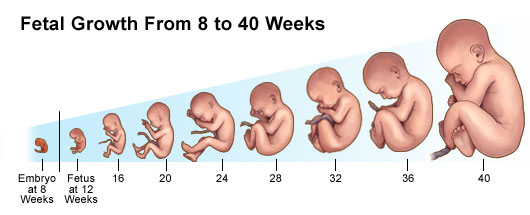
The first trimester of pregnancy is a period of significant changes and development for both the expectant mother and the embryo. It encompasses the initial 12 weeks (or three months) of pregnancy and is a crucial time for the formation of the major organs and structures of the baby. Here’s an overview of what to expect during the first trimester, including development milestones, common symptoms, and important health considerations.
Development Milestones
- Weeks 1-4: Pregnancy begins with fertilization, and the fertilized egg (zygote) travels down the fallopian tube, dividing into a cluster of cells to form a blastocyst. By the end of week 4, implantation occurs as the blastocyst embeds in the uterine wall.
- Weeks 5-8: The embryo’s brain, spinal cord, heart, and other organs begin to form. The heart starts beating around week 6. By the end of week 8, the embryo has rudimentary eyes, ears, and limbs, and is now referred to as a fetus.
- Weeks 9-12: Rapid growth continues, with the fetus developing bones, genitalia, and distinctive facial features. The intestines, which initially develop outside the umbilical cord, start moving into the baby’s abdomen. By the end of the first trimester, the fetus is about 2.5 to 3 inches long and weighs approximately 0.5 ounces.
Common Symptoms
The first trimester can bring a range of symptoms due to hormonal changes, including:
- Morning sickness: Nausea and vomiting, which can occur at any time of day.
- Fatigue: High levels of the hormone progesterone can contribute to tiredness.
- Breast tenderness: Hormonal changes may make the breasts swollen, sore, or tingly.
- Frequent urination: The growing uterus puts pressure on the bladder.
- Food aversions and cravings: Many women experience changes in their taste preferences.
- Mood swings: Emotional fluctuations are common due to hormonal changes.
Health Considerations and Tips
- Prenatal care: Early and regular prenatal visits can help monitor your health and the baby’s development. These appointments often include blood tests, urine tests, and possibly your first ultrasound.
- Folic acid: Continue taking folic acid supplements to prevent neural tube defects.
- Healthy lifestyle: Maintain a balanced diet, avoid alcohol, tobacco, and recreational drugs, and limit caffeine intake.
- Exercise: Regular, moderate exercise can help manage symptoms and improve overall health, but it’s important to discuss with your healthcare provider what activities are safe.
- Stay hydrated: Drink plenty of fluids to maintain hydration, especially if experiencing morning sickness.
- Educate yourself: Consider reading about pregnancy, childbirth, and parenting to prepare for the changes ahead.
When to Contact Your Healthcare Provider
If you experience any of the following symptoms during the first trimester, it’s important to contact your healthcare provider:
- Severe nausea and vomiting
- Significant pain or cramping in the lower abdomen
- Vaginal bleeding or excessive fluid discharge
- High fever or chills
- Any other symptoms that cause concern
The first trimester is both an exciting and challenging period as your body undergoes profound changes. Taking care of your physical and emotional health is key to supporting your baby’s development and preparing for the journey ahead.
To book online select the date and time that suits you best – alternatively, please contact us with any questions via the chat, call or email links provided.
Telephone: 020 7101 3377

